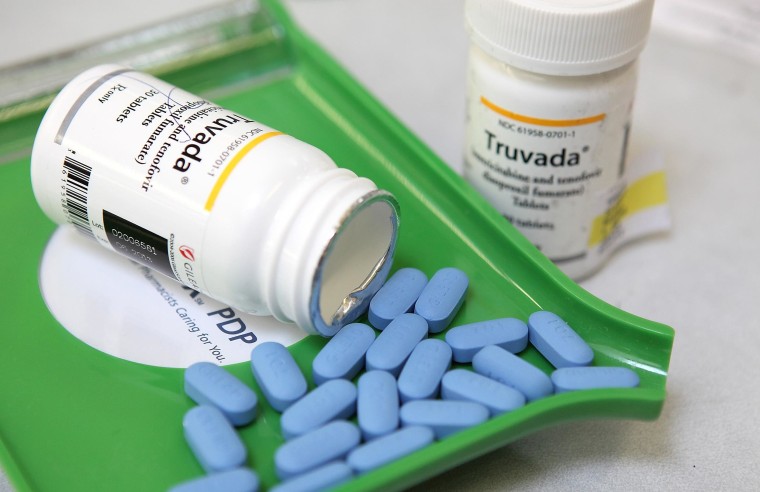People who took a daily pill to protect against HIV were well protected against catching the virus — even when they had unprotected sex and caught other sexually transmitted diseases, researchers reported Monday.
Only two people out of about 500 taking part in the study got infected over the yearlong study, the team reported in the Journal of the American Medical Association.
And that was even though people taking the pills continued to do risky things, like have anal sex without condoms, said Megan Coleman of the Whitman-Walker clinic in Washington, D.C., who worked on the study.
“We know that if you take it, it works,” Coleman told NBC News.
The team studied 557 people who didn’t have HIV but who were at high risk – many of them gay and bisexual men. Each volunteer got a free supply of Truvada, the pill that’s been shown in other studies to protect uninfected people from the virus.
“We know that if you take it, it works."
It’s called pre-exposure prophylaxis, or PrEP.
Some dropped out but 437 stuck it out for the full year. Most did not stop their high-risk behaviors, the team wrote.
“What we have seen was behavior didn’t really change throughout the study,” Coleman added. Men continued to have anal sex without using a condom at virtually the same rate, and the rates of sexually transmitted infection, such as syphilis, remained high.
“This was as real-life as we could get it,” Coleman said.
Nonetheless, only two people became infected and they both had blood tests that showed the drug levels dropped in the blood — almost certainly because they didn’t take the pills often enough. Other people also didn’t keep good levels of the drug — especially African Americans and people living in Miami. It’s not clear why those two groups struggled, Coleman said.
The men at highest risk were also the most like to take the pill consistently, she said.
With no vaccine against HIV, researchers are hopeful that PrEP can help fight the human immunodeficiency virus, which infects 1.2 million people in the United States and 36.9 million people around the world.
For this study, the drug was provided free of charge to everyone. That might not be possible for many or even most people at high risk, since insurers aren’t required to pay for PrEP.
And it would help to have methods available that don’t require people to remember to take a pill every day. Implants, injections or other long-term delivery devices would help, Coleman said.
“Not everybody can take a pill every day. Not everybody wants to,” Coleman said.

